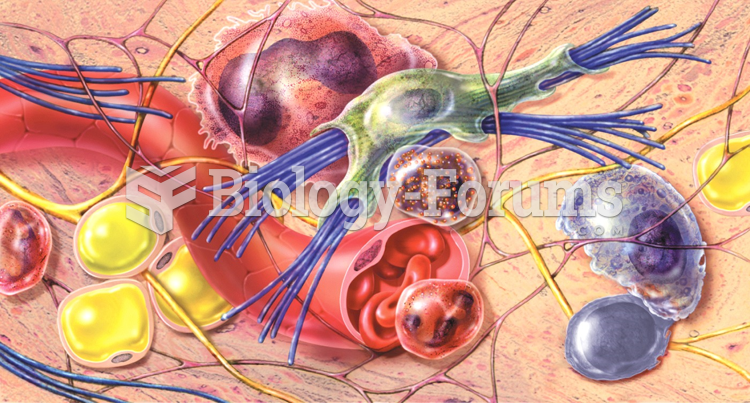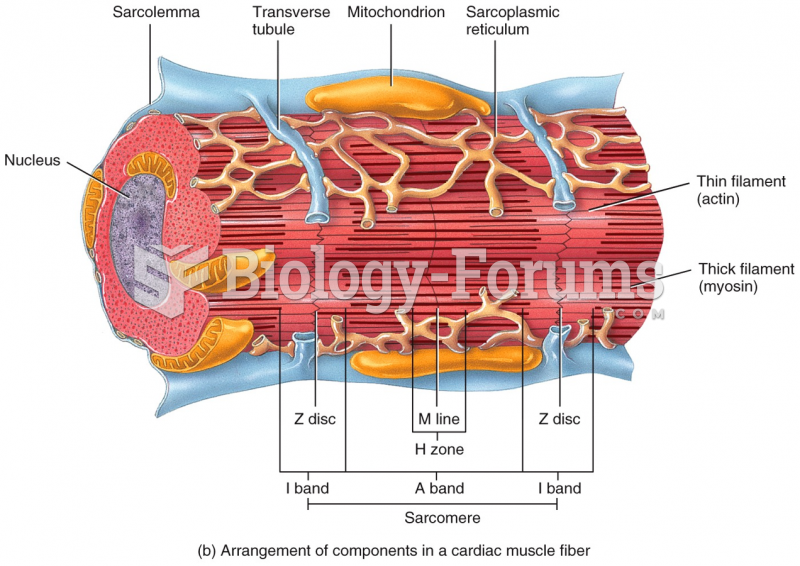|
|
|
A cataract is a clouding of the eyes' natural lens. As we age, some clouding of the lens may occur. The first sign of a cataract is usually blurry vision. Although glasses and other visual aids may at first help a person with cataracts, surgery may become inevitable. Cataract surgery is very successful in restoring vision, and it is the most frequently performed surgery in the United States.
For pediatric patients, intravenous fluids are the most commonly cited products involved in medication errors that are reported to the USP.
In the United States, an estimated 50 million unnecessary antibiotics are prescribed for viral respiratory infections.
Patients who have undergone chemotherapy for the treatment of cancer often complain of a lack of mental focus; memory loss; and a general diminution in abilities such as multitasking, attention span, and general mental agility.
Urine turns bright yellow if larger than normal amounts of certain substances are consumed; one of these substances is asparagus.
 Arrangement of the sarcoplasmic reticulum, transverse tubules, and myofibrils in a single skeletal m
Arrangement of the sarcoplasmic reticulum, transverse tubules, and myofibrils in a single skeletal m
 Cirrhosis. Cirrhosis is characterized by a chronic deterioration of the liver, replacing healthy cel
Cirrhosis. Cirrhosis is characterized by a chronic deterioration of the liver, replacing healthy cel





